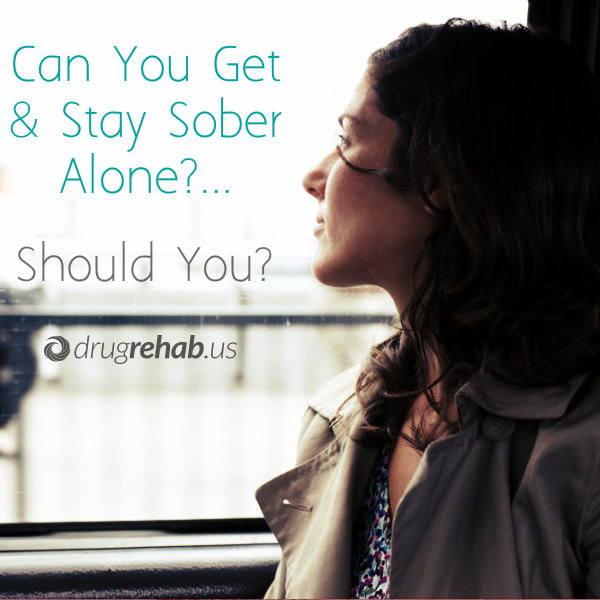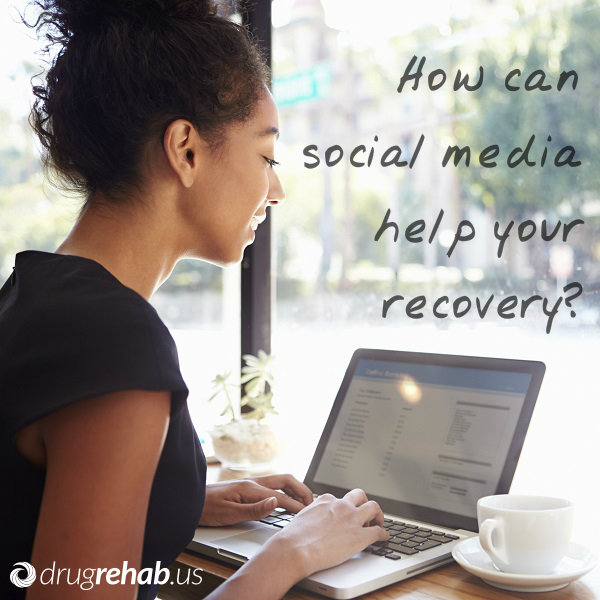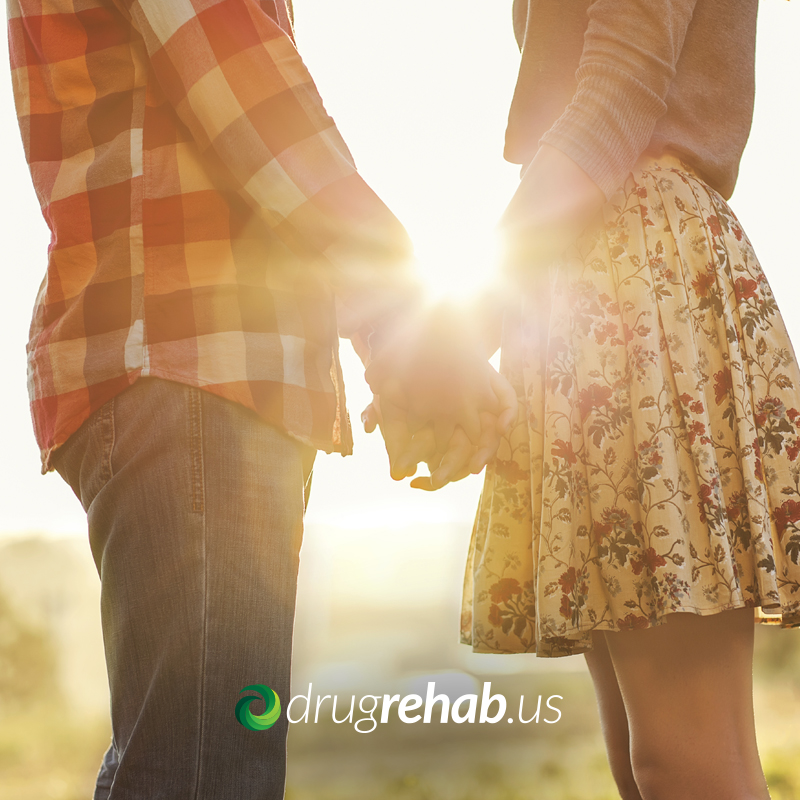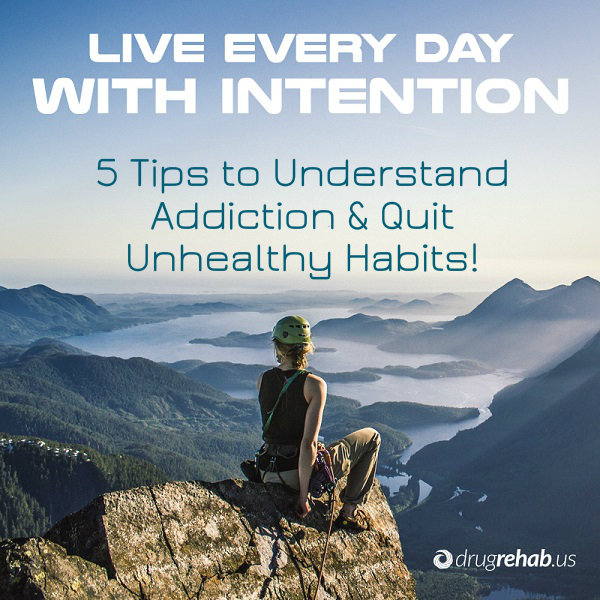25 May 2015
Can You Get Sober And Stay Sober Alone?
You’re determined to get over your problem with addiction. You’ve had enough of the horrible way alcohol and/or drugs are making you feel and the damage you are constantly doing to the people you love. You have lost jobs, relationships and maybe your reputation because of your drinking and drugging. You might even have some health concerns caused by addiction.
People are encouraging you to go to a treatment center. You want to stop your self-destructive tendencies but you don’t want to go anywhere. You are sure that you can quit any time you want to and you’re just about ready to prove it. You don’t believe you need anybody to show you how. You just need to stop using alcohol and drugs.
Powerful Hold Of Addiction
 It’s the great delusion of almost every addict or alcoholic that he or she has the freedom to choose to quit. The truth is that once you are addicted, it’s highly unlikely that you will be able to discontinue using your drug of choice without help. Drugs and alcohol are physically and mentally addicting. Mind-altering substances create a compulsion to continue their use even when they are destroying you.
It’s the great delusion of almost every addict or alcoholic that he or she has the freedom to choose to quit. The truth is that once you are addicted, it’s highly unlikely that you will be able to discontinue using your drug of choice without help. Drugs and alcohol are physically and mentally addicting. Mind-altering substances create a compulsion to continue their use even when they are destroying you.
The reason you can’t quit has little to do with lack of willpower. Drugs cause chemical changes in the brain that lead to craving. You are compelled to keep repeating the experience of getting high even when all the important things and people in your life are slipping away. It’s true that you may be able to quit for short periods of time, but you can’t seem to stay stopped. You are compelled to keep returning to a life of active addiction.
Why You Should Ask For Help
Getting sober requires much more than simply making up your mind that you want to quit. Withdrawing from certain chemicals, including alcohol, can be dangerous and possibly even life-threatening, and should usually be done under medical supervision. Getting through withdrawal is only the beginning. Once you have safely detoxed from chemicals, you have to learn a whole new approach to life and you will need the help of others to do that.
Up to now you’ve been in the habit of running from problems and uncomfortable emotions. With the help of other people, you can learn to cope with the stressors of life without turning to chemicals.
Having the help of people who share their experiences of living a sober life with you will make your journey much easier than it will be if you try to figure everything out on your own. When you go to meetings and reach out to others in recovery, they can tell you the mistakes they have made along the way as well as the things they have learned that have worked.
Remaining Vigilant To Recovery
The best way to get sober is to have the help of others to get through detox and early sobriety. As time passes, it’s equally important to remain connected to others on an ongoing basis and to remain aware that there is always the possibility of relapse.
Even though you’ve broken the cycle of daily habitual use of your drug of choice, you may find that you suddenly experience the compulsion to pick up a drink or a drug after you’ve been sober a while, and this may happen when you least expect it.
Addiction can be compared with other relapsing diseases such as diabetes or heart disease. There is no graduation date and no point at which you are cured. You have to keep doing whatever it takes to stay sober, and that includes going to meetings and staying connected to other people.
Recovery from drugs and alcohol is definitely possible, and in most cases, successfully recovering on a long-term basis is done by surrounding yourself with other people who truly understand.
Your support network can include a sponsor, friends both inside and outside of recovery circles and possibly counselors or addiction professionals. Those who follow the 12 steps of recovery believe that there is strength in numbers and are aware that each of the 12 steps includes the words “we” or “us.” Together we can do what none of us can do alone.
Discover 5 Tips To Understand Addiction And Quit Unhealthy Habits!
16 Mar 2015
How Social Media Can Help You In Recovery
If you use social media sites like Twitter, Facebook, or Instagram, you know that they help you connect with friends old and new, family living far away and new people you’ve never met. What if these sites could be more than just a way to pass the time when you’re waiting in line or a distraction when you should be working?
Social Support And Recovery
 Experts and ordinary people alike have long known that socializing with other humans is beneficial. Social support, whether in the form of having family to rely on, a close group of friends or just peers who share similar experiences, improves your health in a number of ways.
Experts and ordinary people alike have long known that socializing with other humans is beneficial. Social support, whether in the form of having family to rely on, a close group of friends or just peers who share similar experiences, improves your health in a number of ways.
Socializing reduces stress. It also provides a group of people who can offer help when you need it. You repay the favor by helping your friends and family when they need it. Support groups for addiction recovery have been in use for decades for these reasons. Relying on other people helps to strengthen recovery and prevent relapse.
Social Media As Social Support
If you are in recovery, you may already belong to a support group in the real world. Maybe you have a sponsor and go to meetings once a week. There is more you can do to reach out to and engage others, especially with access to technology. Social media support groups are more common now than ever and include groups ranging from traditional alcoholic and drug use support to compulsive gambling and even sex addiction support. Whatever your issue, you can find a support group for it.
Here is how that online group can help you and your recovery:
- Keep you connected – Do you remember what it was like to leave rehab? To go from that place of full support and constant connection to a new life as a sober person? It was pretty scary, but if you could stay connected with the people you came to know and care for in your program, your transition will be easier.
- Provide stability – Support groups in the real world are great and shouldn’t be replaced, but they aren’t always stable. People come and go from these groups and sometimes the groups fall apart altogether. Online social groups are easier to maintain and people can connect quickly to check in without needing to go to a meeting. This can mean a more stable social group over time.
- Share achievements – After a really bad day, you resisted going to the store for a bottle of wine. Instead of going to bed feeling exhausted and alone, get online and share your experience with your social media support group. Get the encouragement you need to face the next day.
- Get and give encouragement – There is nothing like the instant connection you get on social media. If you need some words of support but your next support group meeting isn’t until tomorrow and your sponsor isn’t answering the phone, your social media group can be a lifeline. Even better, you can be there for someone else who needs you in the moment.
- Stay engaged – It’s much easier to turn to an online group than to pack up and head out to a face-to-face meeting. While you should still push yourself to go to meetings, a social media support group can be a great way to keep you engaged in your recovery.
Social media sites have their downsides. They can be distracting and offer up some pretty meaningless content. But if used in a smart way, these sites can provide you with recovery support that may make the difference between continued sobriety and a relapse.
Read Our Other Posts On Relapse Prevention Tips!
19 Feb 2015
How Does Journaling Help Addiction Recovery?
If you have made it through a drug or alcohol addiction treatment program and are now sober, congratulations are in order. You should feel proud of your accomplishment. You should also continue to work at your sobriety.
Recovery is a lifelong process and if you let it slide, you will pay the consequences. There are many ways you can strengthen your sobriety including finding meaningful activities and relationships to fill your life. One activity you may not have considered, but should, is journaling.
What Is Journaling?
Journaling simply means personal writing done on a regular basis. This could mean writing every day, every other day, or once a week. Journaling is always personal, but it can be creative as well. It should not be a simple record of what you do each day; it should be a reflective exercise.
You can write about anything really, but a traditional journal includes reflections on the day’s activities as well as reflections on past experiences. A journal can also include creative writing exercises, fiction writing and poetry. The important part of journaling is that you do it regularly.
Journaling For Addiction Recovery
 Journaling can be a useful tool for anyone with any kind of life experiences, but for an addict in recovery it is particularly powerful in strengthening sobriety. Use your journal to reflect on your past as an addict, to puzzle through the chaos of your life with addiction and to record your accomplishments in recovery.
Journaling can be a useful tool for anyone with any kind of life experiences, but for an addict in recovery it is particularly powerful in strengthening sobriety. Use your journal to reflect on your past as an addict, to puzzle through the chaos of your life with addiction and to record your accomplishments in recovery.
Write about your daily battles to resist cravings and you will find your burden is lifted, even just a little bit. Record and reflect on your interactions with other people and how you are progressing at rebuilding damaged relationships. Write creative pieces like fiction or poetry if you find it clears your mind and gives you something interesting to do.
The Benefits Of Journaling
As an addict, your journal will help you reflect and organize your thoughts, feelings and experiences. This can be a powerful way to heal from your disease. Research has found that writing is beneficial for everyone, not just addicts. Take advantage of the healing power of journaling to help you become well again:
- Cope with trauma – Research has found that when people who have suffered traumatic experiences write about them, they are healthier, both physically and mentally.
- Beat stress and other negative emotions – When you write about what you are feeling, it helps to relieve those emotions. Write when you are angry, stressed, depressed or anxious.
- Make sense of yourself – Writing is a great way to get to know yourself better and to make sure you understand your complex thoughts and feelings.
- Solve problems – Clarifying your thoughts and feelings can help you to solve problems that are going on in your life and causing you worry.
Getting Started
There are so many benefits to writing. Why not get started right away? You can write on your computer, but using a pen and paper is also satisfying. Choose a notebook or nice journal and your favorite pen. Next, set aside at least 15 minutes for uninterrupted writing. Commit to those 15 minutes each day for one week. If you are skeptical about the process, promise yourself to at least try it once a day for a week. By the end of the week you may just be convinced to keep going.
When you start, write about whatever comes to mind. Don’t be afraid to write about your deepest thoughts and emotions. Remember that no one else needs to read this. It is for you alone. When you keep that in mind, and really let go, you will find that the healing power of your journal is immense.
See Our Other Posts On Alternative Therapies For Recovery
12 Feb 2015
How To Get Better Sleep In Early Recovery
Healthy life habits may seem like the least of your concerns when you’re in the early stages of recovery from addiction. You’re probably experiencing intense urges to use again and are focused on not relapsing. But your will can be strengthened if you take care of the basic needs that keep you healthy.
Sleep is one of those basic needs, and it often suffers in early recovery. If you can ensure that you sleep well and for long enough, you’ll feel better and be better able to resist your cravings.
Insomnia And Recovery
 If you’re having trouble sleeping now that you’re in recovery, you’re not alone. Insomnia is a common complaint of people newly recovering from addiction. It’s also a risk factor for relapse, so it’s important that you take steps to correct your sleeping woes.
If you’re having trouble sleeping now that you’re in recovery, you’re not alone. Insomnia is a common complaint of people newly recovering from addiction. It’s also a risk factor for relapse, so it’s important that you take steps to correct your sleeping woes.
Researchers have found that the incidence of sleep difficulties is up to five times higher in people recovering from addiction than in the general population. Furthermore, this insomnia can last for months or even years.
Therapy For Insomnia
Treating your insomnia is important if you want to feel better and be most able to resist a relapse. Using medications, even over-the-counter sleep aids, is risky for a person recovering from addiction. Therapy, on the other hand, is a good place to start working on better sleep. Evidence shows that cognitive behavioral therapy (CBT) can help recovering addicts with insomnia.
CBT is a therapeutic approach that focuses on changing behaviors. A therapist will work with you to teach you how to be aware of your behaviors, how they impact your sleep and how to change them. CBT for insomnia may include keeping a sleep diary, learning good sleep practices, limiting time in bed to actual sleep, controlling stimulation before bed time and managing negative thoughts about sleeping.
Tips On How To Get Better Sleep In Early Recovery
If you aren’t in a position to work with a therapist for your insomnia, there are still some things you can do to try to get to sleep. Good practices for sleeping aren’t always obvious, so you can learn how to be a better sleeper with these tips:
- Start by targeting your bedroom – Make sure your bed is comfortable and that your room is quiet and dark at night. Use ear plugs and heavy curtains if needed and keep the temperature cool.
- Timing is also important for good sleep – You should have a set schedule for when you go to bed and when you get up in the morning. Stick with it every day of the week. This will help train your body and mind to know when it’s time to sleep. The regular pattern of sleeping and waking is an important rhythm. Don’t interrupt it for anything, even on the weekends.
- Prepare yourself for bed at night with a relaxing routine – Avoid caffeine for at least eight hours before your bed time. Don’t drink anything for two hours before bed time to avoid waking in the night. Avoid anything stressful or stimulating before bed time. This includes exciting television programs and exercise. Instead, do something relaxing. Go for a short walk, have a cup of herbal tea, or read a book. Don’t use electronic devices before bed. The artificial light is disruptive to your sleep.
If you can learn to be a good sleeper, you can strengthen your sobriety. Resisting cravings is always easier when you feel good, and you can’t feel good without good sleep. Try changing your sleep practices and if that doesn’t work, consider getting help from a professional. It could be the best thing you do for your recovery.
How To Avoid Getting Hooked On Sleeping Pills – Make Sure You Don’t Take It To The Next Step Of Sleeping Pills And Addiction
Addictions come in many forms, ranging from the more obvious examples such as heroin or cocaine addiction right through to more subtle forms such as food, sex or social media addiction.
Although they might seem like distinct issues, they’re all described by the word addiction because they share many similarities, and they can all be helped in the same basic way. Writing in the U.K. newspaper The Telegraph, therapist David Smallwood shares five tips for understanding addiction and overcoming unhealthy habits.
Tips For Understanding Addiction And Quitting Unhealthy Habits
1. Determine Your Vice
The fact that not all addictions conform to the stereotypical image of persistent drug or alcohol abuse means it’s not as easy as you may think to work out whether you have an addiction or what the subject of it is. Remember that more socially acceptable activities, such as drinking cup after cup of coffee, working 12-hour days, going to the gym every day and eating sugar or fat-laden foods can also be the subjects of addictions. Smallwood suggests that asking a friend to critique your lifestyle may reveal some issues you aren’t aware of, even if it isn’t always a pleasant experience.
2. Learn And Avoid Your Triggers
Compulsive behaviors are a core feature of addiction, and these compulsions are brought on by internal and external “triggers.” These are feelings or situations that lead you to crave your substance or activity of choice, such as loneliness, anger, exhaustion, stress, depression or hunger. Once you identify the factors that are most crucial in creating your cravings, the goal is to break the link between the triggers and the resulting behavior. For example, if you feel stressed or irritable, you should consider calling a friend or family member, taking deep breaths, having a warm drink or taking a calming walk. Smallwood emphasizes the importance of breakfast; if you skip it, mounting hunger cravings throughout the day may be misconstrued as cravings for your substance or activity of choice.
3. Practice Mindfulness And Stay In The Moment
The basic premise of mindfulness—staying “in the moment”—is a useful tip for managing anxieties associated with attempting to remain abstinent. The goal is to focus on the now rather than getting caught up in the past or future; in Smallwood’s words, “Focus on what you are doing, rather than what you are not doing.” Take a walk and focus on the sensory information you’re absorbing; pay attention to the vibrant colors and silky textures of flower petals or the chirping of courting birds rather than being lost in regrets from the past or fears about the future. Practice meditation to improve this skill: simply sitting for 20 minutes or so and trying to focus on one thing (such as your breathing) can help empty your thoughts and bring about mindfulness.
4. Tackle The Underlying Problem
One common problem you may encounter when trying to overcome addiction is “cross addiction.” You might quit smoking, for example, only to “fill the gap” by overworking or overeating. In reality, the real cause of addiction is something deeply rooted, not the specific substance or behavior. If you switch from smoking or drug abuse to overeating, you’re just swapping one addiction for another. Smallwood jokingly compares this to swapping deck chairs on the Titanic; it’s not exactly the same situation, but you’re still heading for trouble on the same boat. Identify the root cause of your addiction (addiction treatment professionals are invaluable in this area) and work on overcoming it, rather than allowing it to manifest in a new way.
5. Set Goals
If you’ve resolved to overcome addiction, it’s important to establish what you’re trying to achieve. Setting definite goals gives you something to work toward, and later down the line, it can help you appreciate how far you’ve come. Smallwood suggests choosing a point of time—two months in the future, two years in the future, whenever suits you—and writing yourself a letter detailing your current lifestyle and how you’d like it to have changed at your chosen date. Put it in an envelope and keep it somewhere prominent and noticeable, with your chosen date written on it. The closed envelope will serve as a reminder of your goals, and when the date arrives, you can read the letter and see if you’ve been successful in your intentions. Taking a step back and examining your lifestyle like this can give you the motivation to keep working to improve yourself and your life.
You DO Have What It Takes To Overcome Addiction!
Beating addiction isn’t easy. It’s a fiendish enemy that can hide in the shadows, change appearances like a chameleon and come back into the fray when you least expect it. But that doesn’t mean you can’t do it, and with the right support and a positive mindset, you do have what it takes to make a change in your life. These five tips don’t cover every aspect of the issue, but they provide a useful, at-a-glance run-through of the core steps in overcoming addiction. If you keep these lessons in mind and work to implement them in your life, you’ll soon be on your way to regaining control and getting your life back on track.
Inspirational Recovery Posts – Be Informed & Inspired!
Many of us have long known that time spent in the great outdoors is restorative and healing. Studies are now proving that there are powerful mental, emotional and physical health benefits to spending time outside and being immersed in nature.
If you are recovering from a drug or alcohol addiction, add outdoor time to your to-do list. Camping, hiking or even just a stroll in a city park will do amazing things for you and, when you feel better, you strengthen your sobriety.
The Benefits Of Being In Nature For Recovery

Make a change and get outside more often. Doing so will give you numerous health benefits. It will help you stay sober as you find new meaning and satisfaction in your life.
Being outdoors means being more active. When you are more active you will be physically healthier. You will be stronger and may even lose weight. When you feel better you will be less likely to give in to urges to relapse. Perhaps even more important to your long-term sobriety are the mental health benefits of the great outdoors. Research has found that walking outside regularly can reduce the severity of depression. Being in nature also reduces feelings of stress, anger and anxiety; it drops blood pressure and helps improve memory and focus.
How To Add More Nature To Your Life
Spending more time in nature could be as simple as sitting outside in your backyard in the evening or going for a walk around your neighborhood instead of watching television. Here are some other easy ways you can get back to nature:
- Go for a walk – Going for a walk will give you the dual benefits of being in nature and getting exercise. If you can, find a place to walk that is as removed from human development as possible. A state or national park is a good choice, but if you can’t get to one, a city park works. Even just a walk around your neighborhood can be helpful.
- Start a backyard garden – Work on your yard or garden to get back to nature. Just weeding a flowerbed in the yard can be restorative, but you can aim bigger too. Try starting a vegetable garden. It will require regular maintenance and will get you outside often. As an added bonus, you’ll have plenty of fresh, organic produce.
- Enjoy the view – Research suggests that just looking at a nice, peaceful and natural view can be enough to give you positive health benefits. If you are not in a position to exercise or go for a walk, find a nice park bench with a pretty view and take it in.
- Take kids to the park – If you have kids, turn of their devices and take them out to play. This will benefit both you and the kids. You will all reap the rewards of spending time outside, getting exercise and, best of all, spending quality time together.
Nature is a powerful force for good and too many of us have become disconnected from it. As a recovering addict you stand to benefit immensely from spending time in the great outdoors. Replace a few of your TV shows or some of your smartphone time with a trip outside. You won’t regret it.
Learn More About Interesting And Unique Types Of Alternative Drug Treatment Programs!
30 Oct 2014
Tips For Dating A Recovering Addict
Dating can be tough. You meet all kinds of people in bars and clubs and maybe you meet some real strange characters in online dating as well. What happens when you meet a recovering addict? Is that a deal breaker or should you consider getting to know him better? The choice is a personal one, but before you dive head first into a relationship with a recovering addict you should be ready for what lies ahead. It could be the real deal, or it could end up being a nightmare relationship.
Realization With And Support For Your Recovering Partner
 The first thing you should know about dating an addict is that he is, in fact, an addict. Addiction is a lifelong disease and even if he has been sober for years, a relapse is always possible. Also know that love does not conquer all, especially real world problems like addiction.
The first thing you should know about dating an addict is that he is, in fact, an addict. Addiction is a lifelong disease and even if he has been sober for years, a relapse is always possible. Also know that love does not conquer all, especially real world problems like addiction.
Your recovering addict partner will need your support, and as much as you love him, he will try your patience at times. Sometimes love is not enough to make a relationship work in the face of real problems. If you understand these realities and accept them, you may be ready to start dating a recovering addict.
Tips For Dating An Addict In Recovery
Here are some important tips to keep in mind as you take this journey:
- Look for honesty – The fact that someone has struggled with addiction need not be a red flag or a relationship ender. What is important is his honesty and openness. If he has been up front with you about his past struggles it shows that he has largely overcome them and is not ashamed. He has done good work and is willing to share that with you. This is a good sign.
- Be open – You also need to be open about his past. Talk about how it makes you feel and what your concerns are. He should be willing to discuss it with you and can likely allay some of your fears. Starting out on your relationship with solid, open communication will help you have a stronger partnership when times get rocky.
- Find the limits – Some recovering addicts cannot be around drugs or alcohol at all. Make sure you know whether you need to refrain from drinking in front of him and be prepared to make those accommodations if necessary.
- Learn the signs of substance abuse – Relapse is always possible, no matter how put together he seems now. Make sure you know the signs of a slip up so that you can be prepared if he relapses and starts using again. It may be obvious, but he may also be subtle about it. Try not to be over-vigilant, but do be aware of changes and what they might mean.
- Volunteer for therapy – If your partner is still attending therapy sessions or occasional counseling, be ready to join in. Offer to go along if he needs or wants you to. It may be a personal experience for him, but he might also want you to be involved. Be open to the experience.
- Take care of yourself – There will be times when dating a recovering addict is stressful for you. Being caring is important, but don’t forget to take care of yourself. Take time off to be alone and to do things that keep you happy and sane whenever you need it.
Make Sure He Meets Your Needs Too And Understand The Challenges
Dating a recovering addict is not impossible, but it may represent an additional relationship challenge. The important thing is that you find someone who meets your needs. If that person happens to be an addict in recovery, understand the unique challenges and be ready to meet them.
Learn More About Addicts And Their Excuses
24 Oct 2014
How A Pet Could Help The Addict In Your Life
If you have ever had a pet—a dog, cat, lizard or even just a goldfish, you know that they can help you feel calm, joyful, loved and needed. Caring for an animal and loving and being loved by one is powerful. Using animals in therapy sessions, or even just to calm patients’ nerves in a dentist’s office, has long been a tool in the arsenal of health care providers. With this in mind, consider getting a pet to help the recovering addict in your household. The responsibility of caring for an animal and the unconditional love it will provide could be greatly beneficial.
 Animal-Assisted Therapy
Animal-Assisted Therapy
To understand why having a pet could help the recovering addict you care about, it’s important to learn a little bit about how therapists have used animals to help patients. Patients with a range of illnesses and conditions can benefit from having an animal involved in therapy. This includes children who have suffered from abuse, people with mental health conditions, patients undergoing painful and stressful medical procedures, people facing the stress and fear of terminal illness and even addicts.
Research has uncovered what humans have long known: being around animals is good for us. Even for healthy people, animals make us feel happier and more relaxed. We even know from research that simply petting a dog can lower blood pressure dramatically. Being around and touching animals has also been shown to raise levels of a hormone called oxytocin, which makes us feel happier and more loving.
Bringing A Pet Home For A Recovering Addict
With the benefits of being around animals in mind, consider bringing a pet into your household if you are caring for a recovering addict. A dog or cat, or even a bird or fish, has the potential to bring joy, purpose and meaning back into the life of your loved one. You can choose the level of care and responsibility needed by selecting the right pet. A dog is a great choice if your loved one is active and capable of taking care of a dog’s many needs. If your loved one doesn’t seem ready for a dog, a cat or other pet could be a good choice.
If you decide bring a pet home, get your recovering addict involved every step of the way. Let her help in the decision-making and learn with her how to care for the new pet. Being a part of the process will give her a sense of responsibility, a new purpose and a greater sense of self-worth. The love that she gets in return will be a powerful motivator to stay clean and sober.
Pets Are A Responsibility
As you make the choice about getting a pet to help your loved one, keep in mind that pets are a responsibility. A pet needs a person to care for him and will depend on that person. If you are unsure whether your recovering addict is up for the task, be prepared to step in and care for the animal and all his needs. If you are not prepared to do this, you may not be ready to welcome home a pet.
Rescue Pets – Tools For Healing And Recovery
Animals are powerful tools for healing. To help the recovering addict in your household, consider rescuing a pet. Check out your local animal shelter to find a cat, dog or other animal that needs someone as much as your loved one needs to care for a pet. You may both be surprised at how much healing power comes in a small, furry package.



